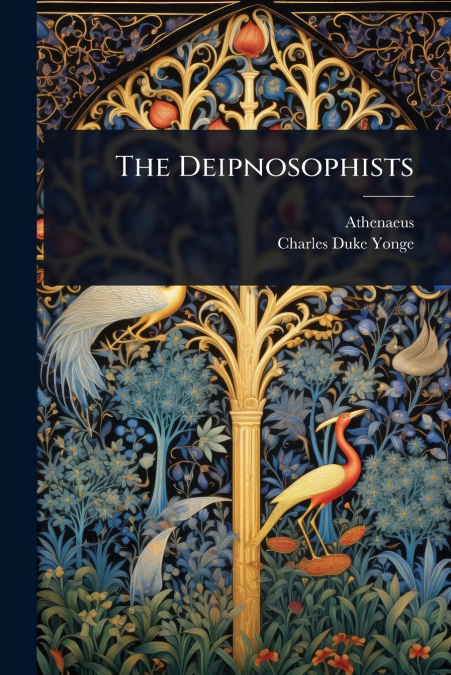
Athenaeus (of Naucratis.) / Charles Duke Yonge
The Deipnosophists, by Athenaeus of Naucratis, is a sprawling and erudite work that offers a fascinating glimpse into the intellectual and culinary life of the ancient world. Presented as a series of banquets (the 'deipnosophists' being 'dinner-experts' or 'banquet-sophists'), the book features learned men engaging in witty and wide-ranging conversations. From discussions of food and wine to literature, philosophy, music, and history, Athenaeus covers an astonishing array of topics, quoting extensively from lost works of classical authors.This remarkable work preserves fragments and anecdotes from countless sources that would otherwise be lost to history. Charles Duke Yonge’s translation makes this treasury of ancient wisdom accessible to modern readers, providing invaluable insights into the cultural values, intellectual pursuits, and daily life of the Hellenistic era. 'The Deipnosophists' remains a vital resource for scholars and anyone interested in the rich tapestry of classical antiquity.This work has been selected by scholars as being culturally important, and is part of the knowledge base of civilization as we know it. This work was reproduced from the original artifact, and remains as true to the original work as possible. Therefore, you will see the original copyright references, library stamps (as most of these works have been housed in our most important libraries around the world), and other notations in the work.This work is in the public domain in the United States of America, and possibly other nations. Within the United States, you may freely copy and distribute this work, as no entity (individual or corporate) has a copyright on the body of the work.As a reproduction of a historical artifact, this work may contain missing or blurred pages, poor pictures, errant marks, etc. Scholars believe, and we concur, that this work is important enough to be preserved, reproduced, and made generally available to the public. We appreciate your support of the preservation process, and thank you for being an important part of keeping this knowledge alive and relevant.